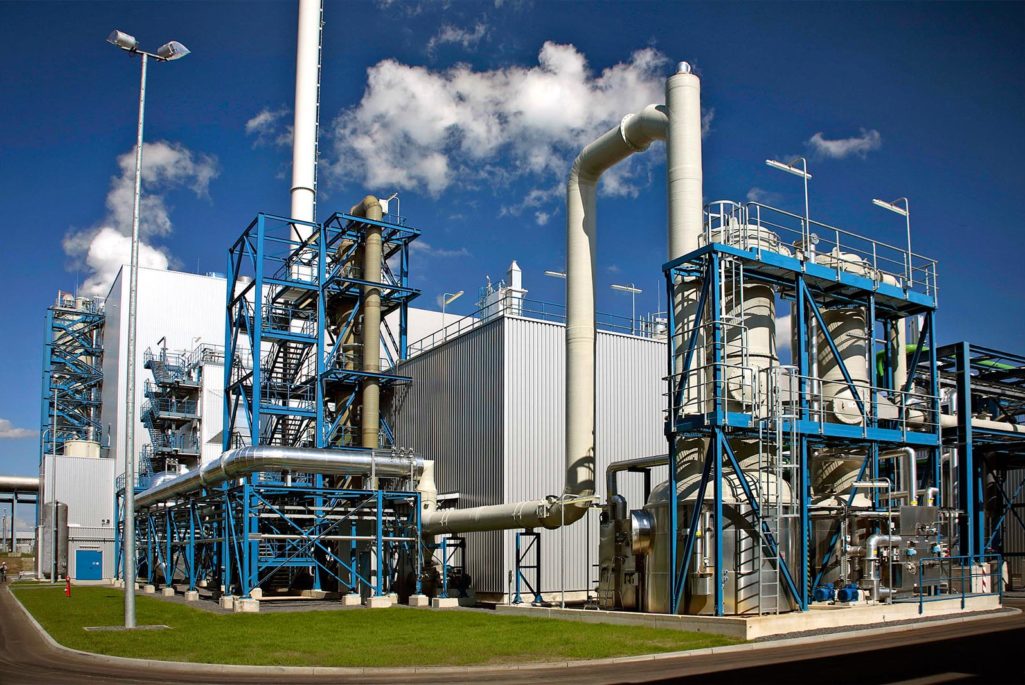Setting a Path for Coal in Climate Change Goals

Vattenfall Carbon capture and storage facility in Scwarze pumpe, Germany
Photo: Vattenfall/Flickr
Coal and other fossil fuels will factor heavily into the negotiations during the COP21 climate talks now taking place in Paris. For true success at COP21, negotiators will have to make clear choices about deploying and funding technologies that can bring emissions from fossil fuel use in line with proposed climate goals, while still providing the needed feedstocks for future urbanization and ensuring the world’s population has full access to modern levels of electricity needed to emerge from poverty.
“The importance of coal in the global energy mix is now the highest since 1971,” Fatih Birol, executive director of the International Energy Agency (IEA), told the Washington Times. “It remains the backbone of electricity generation and has been the fuel underpinning the rapid industrialization of emerging economies, helping to raise living standards and lift hundreds of millions of people out of poverty.”
The industrial evolution of the human community has tracked the use of coal, which now provides more than 40 percent of global electricity—the lifeblood of modern society. In 2000, the world used about 4.9 billion metric tons of coal. By 2014, consumption was more than 7.5 billion metric tons and by 2030, the use of coal could easily exceed 10 billion tons, continuing its upward trajectory for the rest of the century.
Massive urbanization will be the defining metric of the 21st Century. The world’s urban population passed the 3 billion mark in 2002 and is projected to hit 6 billion by 2045. Per the UN, by 2050 alone, the world will have upwards of 10 billion people, and about 70 percent of them will live in cities. As Harvard Professor Edward Glaeser writes in Triumph of the City: “[C]ities are expanding enormously because urban density provides the clearest path from poverty to prosperity.” Coal enables 70 percent of steel production and the majority of cement manufacturing, both essential building blocks of cities.
Urbanization through advanced coal technology serves as the foundation of hope toward a better life for the vast number of children, women and men suffering from debilitating energy poverty. Energy deprivation haunts the developing world, with about 1.5 billion people lacking access to electricity and billions more with inadequate access to power. Almost six billion people, 83 percent of the world’s population, use less than 6,500 kWh per year—the consumption of a typical resident of the European Union.
This lack of electricity takes a mighty toll on the natural and human environment. About three billion people in the developing world use rudimentary stoves to burn wood, charcoal and dung, releasing dense black soot into their homes and the atmosphere. Annual deaths from this household air pollution exceed 4 million per year, and the gathering and burning of such biomass leads to deforestation, erosion, land degradation and contaminated water supplies.
Carbon capture and storage is a critical component in a portfolio of low-carbon energy technologies.
Technology’s Key Role in Near Zero Emissions
Today’s modern, efficient supercritical pulverized coal plants, coupled with carbon capture, utilization and storage (CCUS), are the most promising path to continued urbanization and modern energy access for all while meeting stated emission goals over time. Analysis from the IEA states that “carbon capture and storage is a critical component in a portfolio of low-carbon energy technologies aimed at combating climate change. Given the dominant role that fossil fuels continue to play in primary energy consumption, the urgency of CCS deployment is only increasing.”
COP21 policy makers should propel supercritical technologies and CCUS through tax credits, feed-in tariffs and similar support now concentrated in the renewable sector. Climate goals and economic growth will likely not be met without equitable governmental support for advanced coal technologies such as CCUS. “Urgent action is required from industry and governments to develop such models and to implement incentive frameworks that can help them to drive cost-effective CCS deployment,” according to the IEA.
In its recent report, Leveling the Playing Field: Policy Parity for Carbon Capture and Storage Technologies, the U.S. National Coal Council noted that, in 2013, renewables in the U.S. received 12 times the federal subsidies compared to coal, even though coal and other fossil fuels produced 79 percent of U.S. energy and renewables produced only 11 percent. This policy dissonance only serves to delay progress toward the avowed goals of COP21 and conferees should take strong steps to balance the equation. Near zero-emission fossil fuel technologies such as CCUS have been developed and can be deployed with the kind of support governments give renewables.
If the world is to achieve CO2 emission goals, wherever they are set, the key approach cannot be attempting to replace fossil fuels, but rather addressing the CO2 emissions from the use of them. COP21 conferees should acknowledge the foundational role coal will continue to play in the world’s energy mix and take action to assure technologies will be developed and deployed to keep emissions in line with climate action goals.
The question is not whether the world will use more coal and other fossil fuels, but rather how technology can be used to mitigate their role in the climate change equation.






